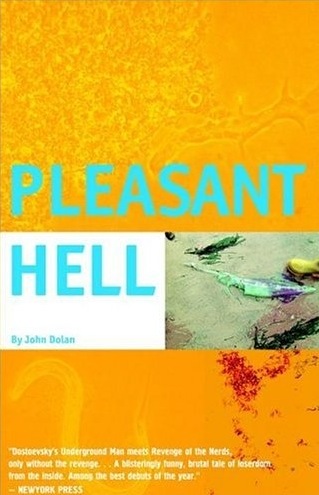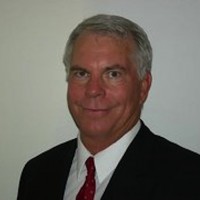
As we previously reported, Fareed Zakaria was reinstated by CNN/Time magazine to his post of corporate lackey. But at least one of Zakaria’s colleagues is not happy about it.
About a week ago, Iraq War liar/Palestinian prison camp guard Jeffrey Goldberg accused fellow Iraq War booster Zakaria of even more plagiarism—and not just any plagiarism, but plagiarism of Goldberg’s own interview quotes!
In my previous post, I discussed an incident from 2009 (an incident I had completely forgotten about until it was resurrected by The Washington Post and The Los Angeles Times, among others) in which Fareed Zakaria, who is currently under fire for plagiarizing a paragraph from The New Yorker, lifted, without attribution, two quotations from pieces I had written. I argued that quote-lifting, or quote-theft, is widely considered to be a journalistic sin, and should be considered so. Fareed disagrees, and he e-mailed me this response a few minutes ago (at the time, back in 2009, he didn’t respond, and it didn’t come up in subsequent conversaions [sic] I had with him, mainly because I forgot about it, I think).
Zakaria pled for mercy, saying that it wasn’t his fault that the journalism profession is so horribly corrupt and unethical. He’s just one guy, after all. Just a CNN anchor trying to make an honest living shilling for warmongers, neoliberals and multinationals:
Let me give you the best example from my own work: I have twice interviewed the Chinese Premier, Wen Jiabao. These are tough interviews to set up and take months, something years. The interviews were quoted in hundreds of newspapers and magazines across the world. Less then 10% mentioned my name. So, I would welcome a new journalistic norm that insists that the interviewer always be named. But it’s unfair to castigate me for doing something that is common, if not standard, practice.
Want to know more? Check out Jeffrey Goldberg’s S.H.A.M.E. Profile:

Posted: August 21st, 2012
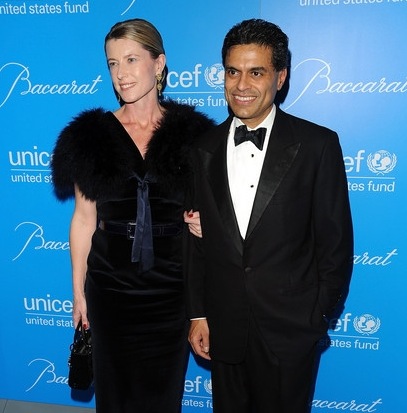
Cross-posted from the S.H.A.M.E. Project
“[The Middle East] is so dysfunctional, any stirring of the pot is good. America’s involvement in the region is for the good. In that way, I’m an immigrant.”
—Fareed Zakaira on invasion of Iraq
After a week on the ropes, Fareed Zakaria is back in the game. Yesterday, Time and CNN announced they had cleared Zakeera of any charges of wrongdoing: “We have completed a thorough review of each of Fareed Zakaria’s columns for TIME, and we are entirely satisfied that the language in question in his recent column was an unintentional error and an isolated incident for which he has apologized. We look forward to having Fareed’s thoughtful and important voice back in the magazine with his next column in the issue that comes out on September 7.” CNN, which is a part of the Time Warner media conglomerate, issued a similar statement: “We found nothing that merited continuing the suspension. Zakaria has apologized for a journalistic lapse.” (more…)

This is the first of a series of posts that will explore and expand on the recovered history of Arianna Huffington recently unearthed by S.H.A.M.E.
Ever since its transformation from a celebrity blog into a mainstream news media outlet, Arianna Huffington has marketed the Huffington Post to the public as a media outlet whose purpose is to leverage social media and new Internet technologies to democratize news and empower the American people by wresting control of news away from corrupt elites. To hear her tell it, you’d think that the Huffington Post was nothing less than a staging area for a populist revolt to reclaim American democracy from corporate rule: (more…)

Malcolm Gladwell on his former roommate Jeffrey Goldberg’s 2006 book Prisoners, which is about Goldberg’s experience as a prison guard at Ktzi’ot, Israel’s largest detention camp for Palestinian political prisoners:
“Jeffrey Goldberg has done the impossible—found some hope in the rubble of the Middle East. Prisoners will bring you to tears.”
—Malcolm Gladwell
Bring tears? Gladwell’s spent the last two decades shilling for an industry involved in the largest mass-murder campaign in the history of mankind, so you know Prisoners got some powerful stuff. And it does:
Ktzi’ot has long been criticized for its inhumane conditions, including frequent beatings, lack of drinking water and forced labor. Among the hundreds of books forbidden to prisoners at Ktzi’ot have been The Lord of the Rings and Hamlet. In the book, Goldberg describes a scene from Ktzi’ot in which his friend repeatedly hit a Palestinian prisoner in the head with a with a heavy, sharp-edged army radio, beating him to a bloody pulp, a beating that Goldberg “deduced was prompted by something [the prisoner] said.”
It was in February 1991, in the Wilderness of Zin, at a place called Ketziot, not far from Kadesh-Barnea, that a friend of mine named Yoram tried, in my presence, to beat senseless an Arab by the name of Abu Firas. Abu Firas was a disagreeable and smug man, but his sourness was not a mortal sin Yoram, whom I knew to be gentle but at that moment had blood in his face, was beating Abu Firas on the head with the handset of an army radio. The handset weighed five or six pounds, and it was sharp-edged. Abu Firas was hurt.
. . . Yoram was a religious Jew, and his kippah, knit and multicolored in the style of the modern Orthodox, stayed pinned to his head through his exertions It was quite a sight—a yeshiva Jew, a God-fearer, delivering a bloody beating.
. . . Abu Firas was on his knees, grabbing at his head. His hair shone with blood. He was barely coherent. He pleaded for water. Yoram tried to jack Abu Firas up onto his feet, but he couldn’t move.
Later in the book Goldberg admits that he lied to cover up the crime: “I found another military policeman, and handed off the wobbling prisoner, who was by now bleeding on me. ‘He fell,’ I lied.” Goldberg also took part in beatings of Palestinian prisoners, but justified it this way: “Unlike [Goldberg’s camp-guard friend], I never hit a Palestinian who wasn’t already hitting me.”

This isn’t the first time Malcolm Gladwell has helped his old buddy out. In fact, Malcolm and Jeffrey have a long, rich history that goes back to when they were just two young conservatives trying to make it as media hacks in the big cruel media world of D.C. They roomed together in the 80s, and both of them started off their careers in mainstream news at The Washington Post—Malcolm worked the business beat, while Jeffrey was a police reporter. Later on the two buddies reunited again at The New Yorker. Editor-in-chief David Remnick, also a Washington Post alum, hired Malcolm in 1996, and brought Jeffrey on board in 2000. Somewhere along the way, Malcolm Gladwell introduced Jeffrey Goldberg to the man’s future wife. “[Gladwell’s] responsible for the existence of my three children,” blushed Goldberg.
As a token of respect and appreciation, Jeffrey Goldberg included his buddy Malcolm on a list of “Top 50 Philo-Semites,” helping promote his Judeophilic buddy’s newest book Outliers with a link to Amazon just as Outliers was hitting bookstores in November 2008:
Malcolm Gladwell’s Top 50 Philo-Semites
NOV 20 2008, 2:39 PM ET
So, as you have undoubtedly heard, the Forward has chosen me as one of its 50 most influential American Jews. Me, Rahm Emanuel, Sarah Silverman, and Lipa Schmeltzer, among others.
This honor has changed my life, especially the magnificent gift of 1,000 shares of AIG stock from the finance committee of the Elders of Zion. It has also caused heartache. Friends are envious, even non-Jewish friends. For instance, Malcolm Gladwell is very upset. When we were roommates a very long time ago, Malcolm used to listen to the klezmer stylings of Giora Feidman on his record player. He is, in other words, very Jewy. He is also deeply wounded. “I am so jealous,” he wrote. “Shouldn’t there be a parallel list for wanna-bes?”
Yes, there should. If the Forward can publish a list of the top 50 Jews, then Goldblog can publish a list of the top 50 philo-Semites. I don’t have a philosophical problem with this, by the way: I dissent from the line, first passed on to me by Frank Foer, who, tragically, is not a top-50 Jew (though his mother is!), that philo-Semites are anti-Semites who like Jews. So, a list, and one loyal readers can help me assemble. I already asked Malcolm to provide me names of other philo-Semites, but he said: “How do I know philo-Semites? I’m such a philo-Semite I only associate with the real thing.”
Here are a few names, just to get us going:
READ MORE about Malcolm Gladwell and Jeffrey Goldberg at the S.H.A.M.E. Project:


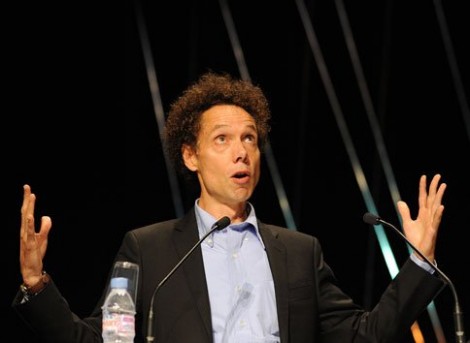
REPOSTED FROM THE S.H.A.M.E. PROJECT
Last week, I got an email from Malcolm Gladwell. He told me he read the S.H.A.M.E. report I wrote about him a few weeks ago, and asked if I had time to answer a few of his questions:
From: Malcolm Gladwell
To: levine@exiledonline.com
Date: Tue, 12 Jun 2012 3:56 PM
I recently read your pieces about me. I have a number of questions I’d love to ask you. Do you have the time? Cheers, M.
(more…)
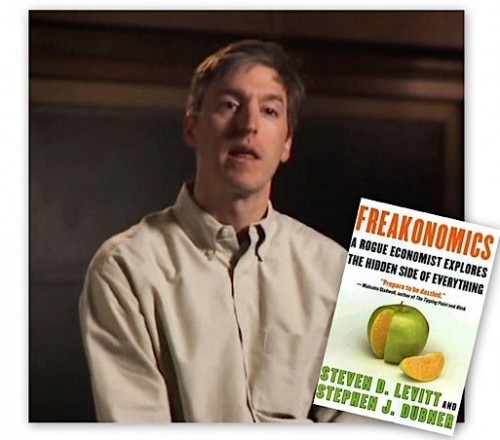
Steven Levitt, University of Chicago economist, gained nationwide fame and prestige after co-authoring Freakonomics, a pop economics book based partly on Levitt’s original economic research. Published in 2005, Freakonomics became an instant #1 bestseller and spawned an entire Freakonomics media franchise that included a branded Freakonomics blog (hosted on the New York Times website until 2011), a regular segment on the National Public Radio program Marketplace, a Freakonomics movie and, alas, a Freakonomics business consulting company (now called the Greatest Good). (more…)
Cross-posted from the S.H.A.M.E. Project. For a reader’s digest version of this report, check out Malcolm Gladwell’s S.H.A.M.E. Profile…

“I’m necessarily parasitic in a way. I have done well as a parasite. But I’m still a parasite.”
Malcolm Gladwell
In the vast ecosystem of corporate shills, which one is the most effective? Propaganda works best when it is not perceived as propaganda: nuance, obfuscation, distraction, suggestion, the subtle introduction of doubt—these are more effective in the long run than shotgun blasts of lies. The master of this approach is Malcolm Gladwell.
Malcolm Gladwell is the New Yorker’s leading essayist and bestselling author. Time magazine named Gladwell one of the world’s 100 most influential people. His books sell copies in the millions, and he is in hot demand as one of the nation’s top public intellectual and pop gurus. Gladwell plays his role as a disinterested public intellectual like few others, right down to the frizzy hairdo and smock-y getups. His political aloofness, high-brow contrarianism and constant challenges to “popular wisdom” are all part of his shtick. (more…)
























